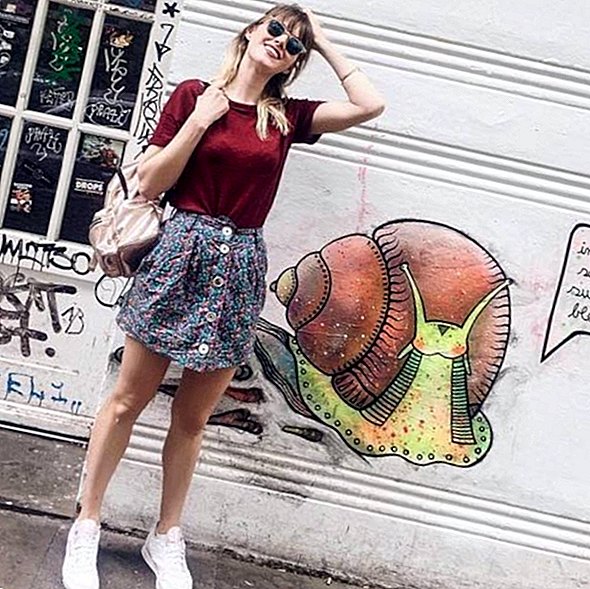Perfect, Perfect, Instagram: What social media does to us

Social media started harmlessly a few years ago. It was a platform for communication, eventually it became an entertaining playground for bloggers. Something that splattered nicely next to it, without beating high waves. But the calm comes before each storm and from the peaceful lapping was a high-pitched wave, which should wash over us at some point.
Suddenly, the social media appearances of a blogger were more important than the blog itself, and Sabine and Anna next door not only the eye-catcher from the village Disse, but small stars who could reach a five- to six-figure reach.
The new development not only showed us that almost everyone can suddenly become a well-paid influencer (New German for: someone who reaches many people on social channels like Snapchat and Instagram). It also brought with it a new form of perfectionism. The virtual social world has become a never-ending stream of perfectly staged breakfast bowls and living rooms with Scandinavian furniture. Had you wanted to wipe your display at that time, it would have squeaked with sterility.
Quality on the social web costs money
The industry changed. Larger companies came to the funnel that quality also costs money on social web. That, in turn, was the flip side of the coin: finally, you were taken seriously as an influencer and instead of being paid with T-shirts and pants with cash, which was good!
Only: With the now also commercial claim on? Authentic and real? a gross thinking mistake happened here. So much authentically much could not be what was posted daily to the World Wide Web. The visual language became more and more similar, interchangeable among countless accounts. Some performed better in this unification than others, some became real stars. But with the prospect of being most successful with a certain imagery, the uniforms of the performances took place. To put it bluntly: Something's going well, that's what it's all about.
Just as a puzzle without edges can only be a memory in which not every part is individual but has at least one identical counterpart, the new perfection on the web was radiantly beautiful, but hardly any more unique.
Social media perfection worked
Bloggers and companies did not care about that. Social media perfection worked, evolving into even greater reach. Yes, that was the way to make money? and the small, accidentally perfect wave became a raging whirlpool, into which suddenly more and more people jumped to get the largest possible portion of the cake.
Today cellulite is retouched on all channels, waistlines are reduced and lips are magnified by facetune apps. Teeth are made whiter and each meal tastier than in a 5-star restaurant. Contrasts, filters and sharpening are just the icing on the cake of a fully-corrected normality. And that makes something with us: The constant consumption of the staged reality shifts borders, increases the pressure to perform and makes in the end dissatisfied. If it is considered? Normal? is true that someone in the morning perfectly made up in bed lies and wants to tell us with the caption #WokeUpLikeThis that he usually looks perfect at the first ray of sunshine, then that inevitably changes our perception? our perception of others and the perception of ourselves.
Muzzle full of perfection
But good that every trend eventually reaches its peak, the high wave breaks and ultimately abates. Another natural law can also be relied upon: pressure generates counterpressure. So slowly we are fed up with perfection. What remains is the honest desire for authenticity? far away from #WokeUpLikeThis. So has designer Moto Guo from Malaysia his models during the? Milano Moda Uomo? sent to the catwalk with spotty faces and redness, model Ashley Graham confidently stands for her cellulite and is celebrated for it. And even bloggers like the mother / daughter duo StyleLikeU are making a strong case for anti-perfection, or in other words: for reality. No illusion, no fake, just you and me as we look in the mirror. Fallible, unfiltered, with stigma and above all: human.

about the author
Viktoria Wanka loves fashion, good food and travel and likes to post this on her social channels.










